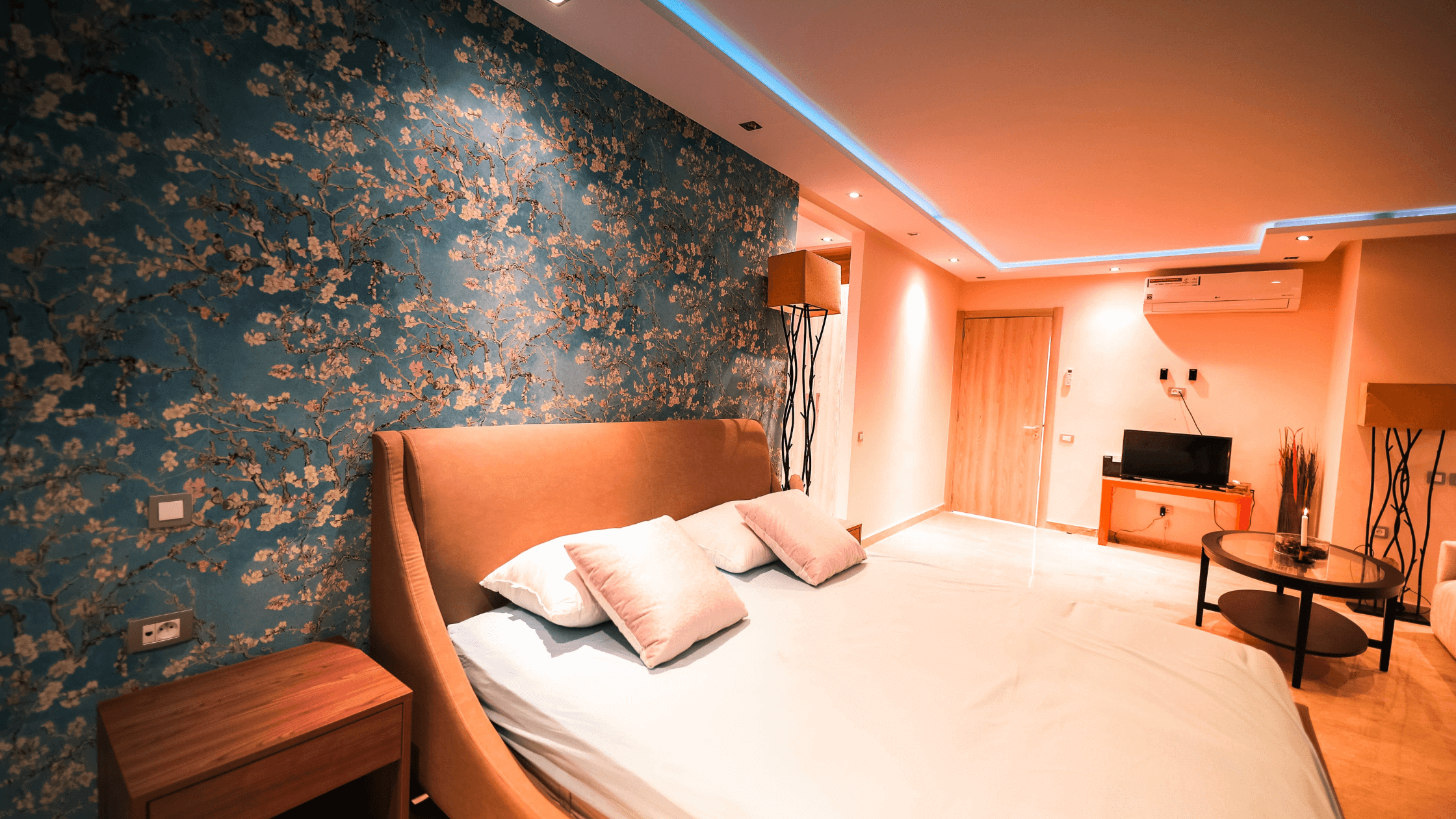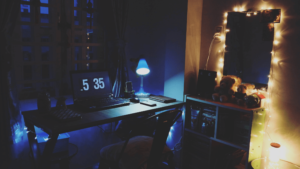
One of the main reasons for a sleep disorder is not having the best Lighting for Night to Have a Good Sleep. More than 25% of Americans are estimated to have a sleep issue, and more than 70 million Americans suffer from some sort of sleeplessness, according to statistics. More than 25% of Americans are estimated to have a sleep issue, and more than 70 million Americans suffer from some sort of sleeplessness, according to statistics.
A good night’s sleep is influenced by a variety of factors, but one of the biggest issues (and simplest fixes) can be summed up in not having the best lighting at night. specifically how much you consume throughout the day and what you are exposed to just before bed.
Lighting for Night
The mood-enhancing lighting options listed below can help you sleep and get the best lighting for the night to have a good sleep and prevent you from becoming another statistic.
Portable Touch Table Lamp
All types of light have an effect on how well you sleep, but blue light, which is released by LEDs, tablets, and cell phones and is only present at night, is the worst, claim researchers from King’s College in London. Michael Breus, the Sleep Doctor, advises choosing a warm light over anything that emits blue light since light is stimulating and stimulates the brain, which is the reverse of what we want when going to bed. The Portable Touch Table Lamp, a favorite of Zo Sessums of Architectural Digest, creates a mellow tone with LED white light to aid in sleep.
Verilux HappyLight
While getting adequate sunlight during the day is crucial for establishing a healthy sleep-wake cycle, artificial lighting in the home can also be effective if you live in a place where this is not possible. To make it much easier for you to go to sleep at night, the Verilux Happy Light imitates the sun’s natural light. If you reside in an area with little sunlight, Dr. Addor advises using red light later in the day and artificial light during the day.
Philips SmartSleep Sleep and Wake-Up Light
Scientists have demonstrated that using scheduled light, such as that from a sunrise alarm clock, can help you get a better night’s sleep. Instead of a screeching alarm clock, the Philips Smart Sleep light is triggered by the sunset, making it easier to wake up. According to Dr. Addor, “the perfect bedroom should be a temple of sleep.” The greatest approach to wake up is a spontaneous and natural wake up. Use a dawn simulator alarm clock to prevent the highly detrimental stress of a shrieking alarm going off in the morning.
Sleep Aid Red Night Light
These tiny LED lights feature a low light level that won’t disturb your sleep, but they also provide a steady nighttime road to the bathroom in case you suddenly wake up having to use the restroom. Dr. Addor notes that it is preferable to use the restroom in the middle of the night when it is dark or with a red light because a bright light could keep you from going back to sleep. “Turning on the light could deceive the brain into believing that morning has already arrived.”
Moon Lamp
Avoid blue light at least an hour before night, such as that from smartphones, computers, televisions, and LED lightbulbs, advises Dr. Addor. “Experiment with reading a book by a candle or incandescent light. Use of essential oils for sleep, such as lavender, vanilla, or ylang-ylang to encourage sleep, is a clever biohack. Just what the doctor ordered, the HappyHaves Original Moon functions as both an essential oil diffuser and a lamp.






